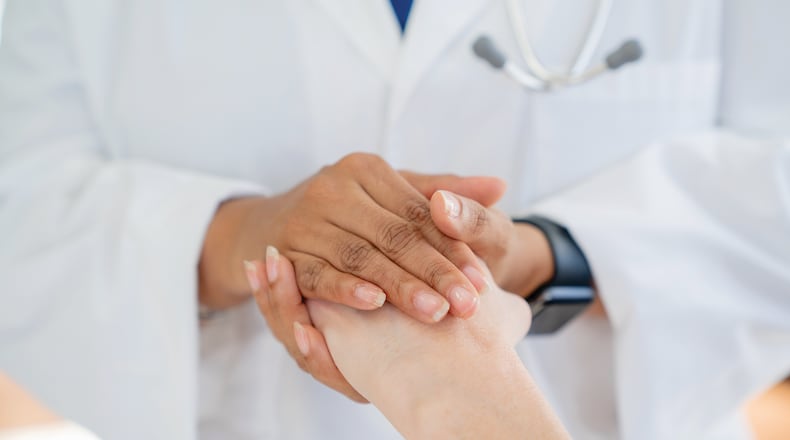“And that is such a horrible and tragic statistic,” Andarsio said.
Suicide is the 10th-leading cause of death in the United States with nearly 50,000 lives lost annually. Rates have increased over 30% in the last 20 years, affecting all walks of life, from teens, to military, to minorities, to seniors, and LGBTQ residents.
The suicide rate among male physicians is 1.41 times higher than the general male population. And among women in medicine, the relative risk is even more pronounced — 2.27 times greater than the general female population, according to the American Foundation for Suicide Prevention.
About 28% of medical residents experience a major depressive episode during training, versus 7–8% of similarly aged people in the U.S. general population.
“There’s just so much stigma still with mental health and mental health disorders. We are the people trained to help other people, and so it can be really hard to ask for help,” said Dr. Sallie Wilson Luther, who works on suicide prevention efforts in the Dayton area.
While anyone who needs help can call the National Suicide Prevention Lifeline at 1-800-273-8255, the 13th annual Wright State University Medical-Spirituality Conference will gather health care workers together to explore the scope of the problem and consider the power of connection, healing, and hope.
Luther has a history of volunteering with suicide prevention and helped organize the upcoming conference. She lost her sister to suicide in 2000. She said when she learned that medical professionals have a higher rate of suicide, and then learned women and medicine are at an even higher risk, she thought that suicide prevention would be something where she could make an impact.
The conference will address many different populations beyond health care professionals themselves. Josh Egeland from Daybreak will address suicide among LGBTQ+ youth, Lisa Conn from Ohio’s Hospice will talk about grief and suicide, and RN Birdie Meyer will share her expertise in perinatal mood and anxiety disorders.
But Andarsio said they wanted to also make sure to talk about help for physicians and health professionals.
The full effect of the COVID-19 pandemic on the suicide rate, and particularly for workers in health care, is not clear at this point. The pandemic exacerbated many longstanding stressors, like burnout and understaffing, and recently health care workers have been leaving the profession in high numbers.
Andarsio said many doctors also worry about whether their mental health issues will affect maintaining their license.
“I think that ... the pandemic has really exacerbated some of these issues,” Andarsio said.
Research shows physicians who died by suicide were less likely to be receiving mental health treatment compared with non-physicians who died by suicide, even though depression was found to be a significant risk factor at approximately the same rate in both groups.
While Luther said there’s still more to be done, she thinks there’s been improvement in helping health care professionals get mental health help.
“I think we’re kind of slowly chipping away and people are feeling more comfortable reaching out for help,” she said.
How to get help
Anyone can call the National Suicide Prevention Lifeline at 1-800-273-8255 and get free, confidential help. People can also chat with a trained professional online at suicidepreventionlifeline.org/chat.
How to attend Wright State University Medical-Spirituality Conference
The conference will be 8:45 a.m. to 4:45 p.m. April 21, at the Sinclair Conference Center.
Registration is at medicine.wright.edu/med-spirit.
About the Author

